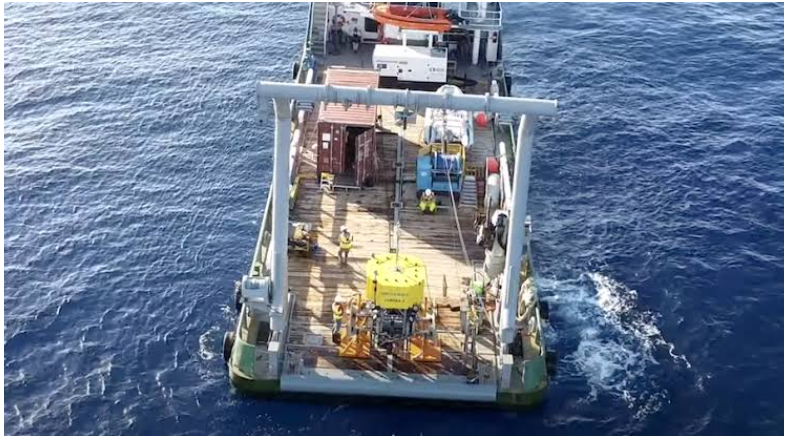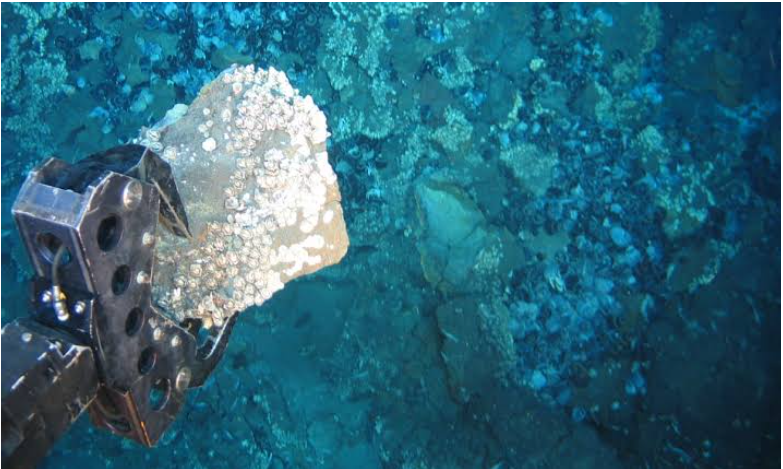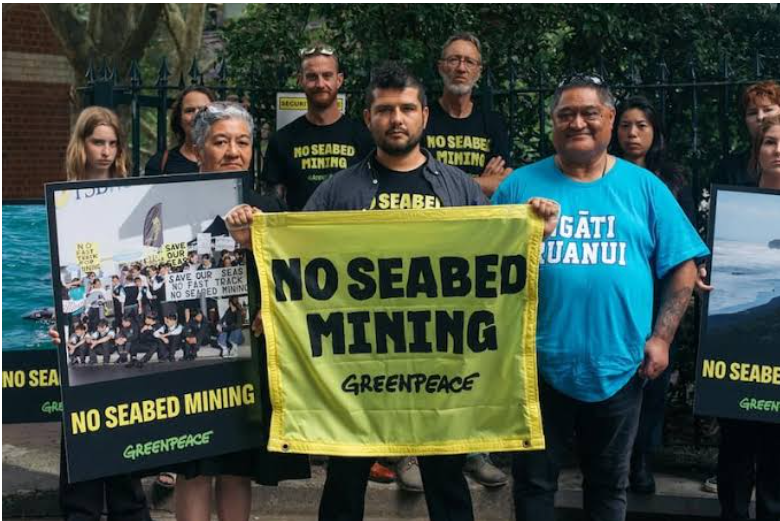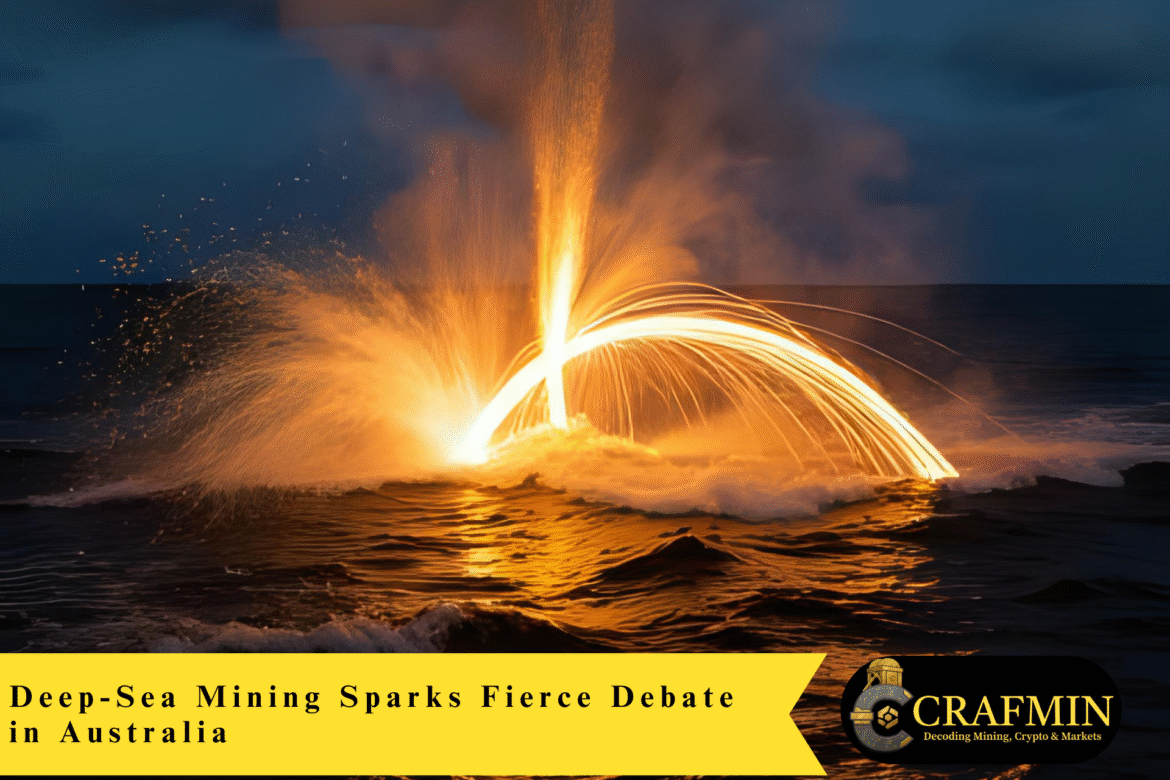 Image courtesy of Impossible Metals
Image courtesy of Impossible Metals
The debate over deep-sea mining has shifted from the academy to the center of Australia’s environmental and resource policy debates. What had been considered a science fiction extraction technique is now on the national agenda—and it’s pitting scientists, industry leaders, and policymakers against one another.
What is at risk is whether Australia will use its influence to defend or oppose the rush for deep-sea mineral mining, a development that can provide new resources for the global clean energy future, but at huge environmental price.
The Race for Critical Minerals at Sea
As demand for so-called critical minerals such as cobalt, nickel, and rare earth metals skyrockets, miners are looking to the ocean floor. Enormous seabed deposits—especially polymetallic nodules—are believed to hold exactly the metals required for EV batteries, wind turbines, and renewable energy equipment.
Industry proponents contend that seabed mining could cut dependence on conventional mines, which are declining in grade, contended by social opposition, and under increasing ESG (environmental, social, governance) pressure.
For Australia, positioning itself as a world leader in the race for critical minerals, seafloor exploration may seem like the next frontier. But researchers indicate it is accompanied by unprecedented danger.
Scientists Sound the Alarm
 Source: The Guardian
Source: The Guardian
Marine biologists and conservationists caution that it is not another step in mining when minerals are sought from the seafloor—it is an irreversible experiment on Earth’s most poorly understood ecosystems.
“Once you disrupt deep-sea ecosystems, there’s no turning back,” says one Australian marine ecologist. “We’re discussing species we don’t even know we have yet, inhabiting systems that took millions of years to evolve. Erasing them for immediate resource extraction would be disastrous.”
Issues are not merely about loss of biodiversity. Stirring up seabed sediments might bring stored carbon into the environment and affect oceanic food chains, with knock-on repercussions extending to coastal fisheries that people rely on.
Pressure Grows for a Global Moratorium
The global community is splitting increasingly down the middle. Some Pacific Island countries, whose waters are being eyed up for exploration, are calling for a moratorium on seabed mining in the face of existential threats to their marine environment.
Down under in Australia, the pressure is mounting. Environmental organizations are calling on Canberra to officially support a pause, making the nation a champion of the oceans in keeping with its climate and biodiversity pledges.
This is not about opposing critical minerals, say the advocates, but about posing a basic question: Must the transition to clean energy be at the expense of one of the remaining pristine ecosystems on Earth?
The Industry Backlash

Photo / Greenpeace
The mining industry maintains the risks are exaggerated. Seabed extraction can be made safer than land mining, they contend, with strict controls and new technology.
Industry spokesmen also refer to the geopolitical stakes: by staying out, Australia might leave the door open for other powers to control the seabed competition. China, for example, has heavily invested in deep-ocean exploration, setting itself up to lock in long-term supplies.
From this view, an outright rejection of seabed mining might undermine Australia’s capacity to continue as a central supplier in the world minerals supply chain.
Australia’s Position in 2025
Until now, the government of Australia has not adopted a firm stance, although authorities recognize the increasing urgency. Policymakers are in a delicate balancing act: having Australia contribute to the clean energy future while protecting its natural heritage.
The controversy arrives on the back of pressure on the mining sector to tidy up its environmental act, and consumers increasingly examining supply chains for social responsibility. If Australia wants to position itself as a morally responsible provider of minerals, the deep-sea mining decision will be crucial.
A Question of Strategy: Short-Term Gain vs. Long-Term Costs
Economists warn that although seabed mining may bring short-term gains, the long-term price tag could overwhelm them. Harm to fisheries, coastal economies, and world biodiversity could propagate ripple effects worth many times the value of the minerals themselves.
Australia has another plan, critics contend: double down on recycling, urban mining, and innovation in on-land mining to lock up supply without sacrificing the oceans.
“It’s not about saying no to minerals. It’s about saying yes to smarter ways of getting them.”
The Global Outlook
The issue will not fade anytime soon. International negotiations under the International Seabed Authority are ongoing, and the pressure to reach an agreement is growing. Whether Australia leans towards supporting a moratorium or facilitating controlled trials could define its environmental legacy.
What’s clear is that deep-sea mining is no longer a hypothetical future—it’s a live policy issue with implications for Australia’s identity as a mining superpower and as a country pledged to defending its oceans.
Conclusion: A Defining Choice
Australia is now in a defining choice: it can endorse deep-sea mining as part of the resource frontier, or plant a red line in defense of the oceans.
The choice will not just impact the nation’s mining industry but also its international reputation in climate, environment, and energy policy.
Whether it will be recalled as the country that exploited the oceans or the one that saved them, the response will resound long after 2025.

